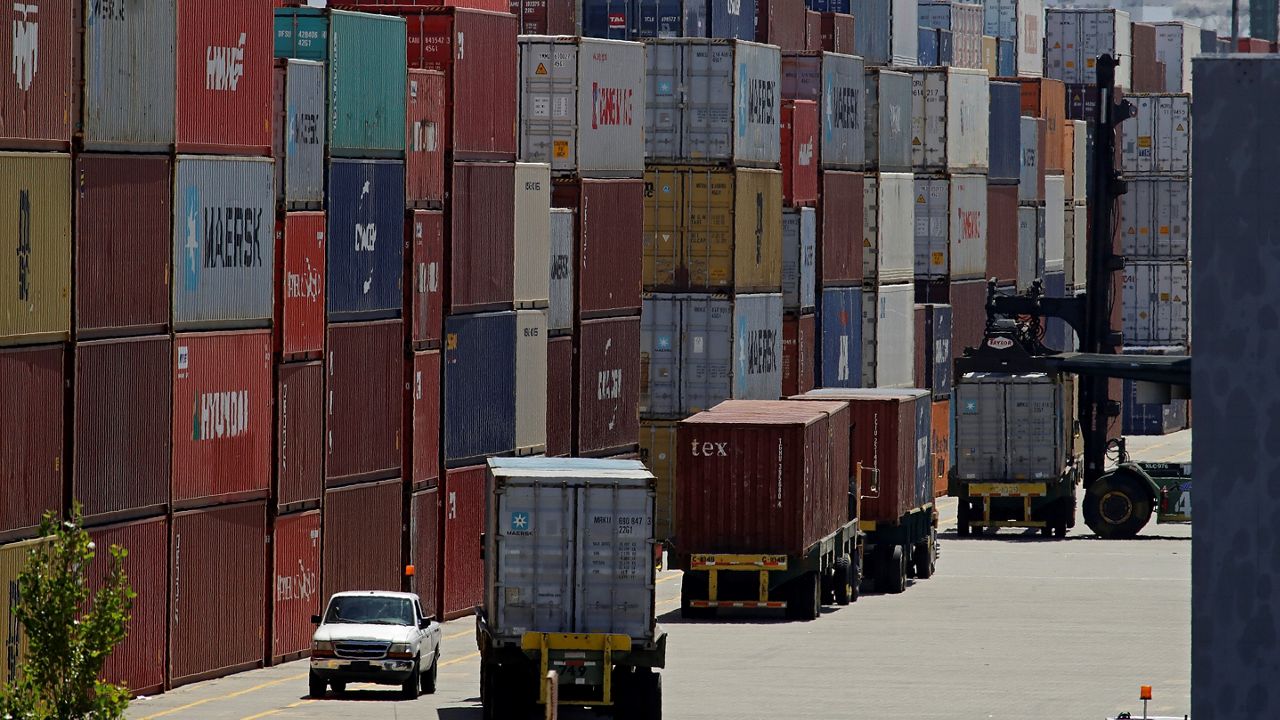WASHINGTON — President Donald Trump’s decision to follow through on his long-promised tariffs on goods from Canada, Mexico and China is drawing strong reaction on Capitol Hill, with Democrats blasting the move as his own "Super Bowl tax" while Republicans are giving a mixed response.
In both anticipation of and in the wake of Trump’s official announcement over the weekend that he is imposing a 25% tariff on imports from Mexico and Canada and a 10% one on those from China, many Democratic lawmakers are lambasting the move, arguing it will lead to higher prices for the American public and directly fly in the face of a major piece of Trump’s pitch to voters during the 2024 campaign.
“Republicans have failed to deliver on their central promise of lowering costs," House Minority Leader Hakeem Jeffries, D-N.Y., said in a statement. "Instead, they have freed violent felons, attempted to end Medicaid as we know it and plan to enact massive tax cuts for their billionaire donors. The tariffs imposed by the administration and strongly supported by House Republicans will not lower the high cost of living for everyday Americans.”
On the Senate side, Minority Leader Chuck Schumer, D-N.Y., vowed to pursue “legislative solutions” in the upper chamber – despite Republicans holding a majority – in order to “remedy” the impact of the tariffs.
“These 25% tariffs on Canada and Mexico make 100% no sense,” Schumer said. “Even more shocking, it was Donald Trump who campaigned on lowering costs, and now it is Donald Trump who will raise them, and expects consumers to just be OK with that.”
Sen. Mark Warner, D-Va., referred to it as "the Donald Trump Super Bowl tax" in an interview with CBS' "Face the Nation" on Sunday, pointing to the potential that the price of avocados, tomatoes and beer from Mexico could increase.
Trump himself over the weekend noted that the levies – which he says are in response to the countries allowing illegal immigrants and fentanyl into the U.S. as well as for being treated “unfairly” as a trade partner – may lead, in the short term, to “a little pain.” Economists warned about potential price increases on the American public as the now-president pitched the idea on the campaign trail.
Republicans, on the other hand, are displaying some range in their reactions, with many lining up behind their party’s leader while others are questioning the impact it could have at home.
Among those defending the decision over the weekend was Sen. Eric Schmitt, R-Mo., who argued in an interview on NBC News’ “Meet the Press” that the tariffs will “even the playing field with countries who have been ripping us off.”
Schmitt also pointed to Colombia last week agreeing to accept planes of deported migrants being sent by the U.S. after initially refusing following a tariff threat from Trump as well as the state of the economy in the president’s first term.
“So, the fact of the matter is it works,” he said. “It worked the first time when he was in office. We didn't see inflation. We saw wage growth, and we saw more on-shoring of jobs back here to the United States.”
In an interview on News Nation’s “The Hill Sunday,” Rep. Byron Donalds, R-Fla., made the case that the “risks are worth it,” citing the need to stop illegal immigration and stem the flow of fentanyl into the country.
“And if they’re not going to do it out of the kindness of their hearts, then yes, we are going to have to use every tool in the toolbox economically in order to do so,” he said.
Other lawmakers in the party, however, expressed more skepticism, with Sen. Rand Paul, R-Ky., arguing that tariffs are “simply taxes” and noting that traditionally conservatives have been “united” against any new taxes.
“Tariffs are simply taxes. Conservatives once united against new taxes,” Paul wrote in a post on X. “Taxing trade will mean less trade and higher prices.”
Sen. Susan Collins, R-Maine, noted in a post on X that her home state’s economy is “integrated” with Canada’s and warned the levies will impose a “significant burden” to some in Maine. She said she was working with the Trump administration to explain the “potential ramifications” of tariffs on the state as well as press for answers on their implementation, scope and duration.
“From fisheries to potato farmers to paper mills, these tariffs will have a significant impact on Maine’s economy and risk increasing costs for our residents,” Collins wrote.
Sen. Mitch McConnell, R-Ky., who stepped down from leadership this year after serving as the top Republican in the Senate for nearly two decades, told CBS' "60 Minutes" over the weekend that the move will “drive the cost of everything up."
"In other words, it will be paid for by American consumers," he added. "I mean, why would you want to get in a fight with your allies over this?”



